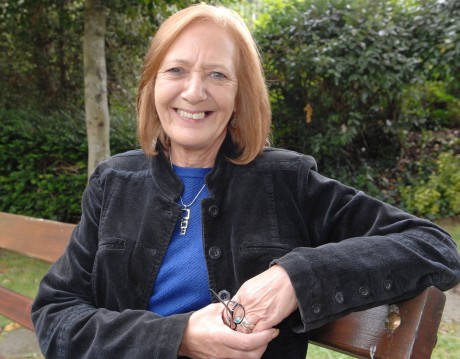
Hazel Hayes Co-Founder of Fermanagh Women’s Aid
RECENTLY retired manager of the Fermanagh Women’s Aid refuge in Enniskillen, after a 20-year stint, Hazel Hayes, paints an alarming picture of men abusing their wives and partners.
She explained how she has helped two or three women who have been abused, in turn, by the same perpetrator.
“They’re very cunning in concealing their behaviour. It’s all about power and control, and the (abused) women blame themselves for the abuse because they’re told it’s their fault.”
In 1993, she was a co-founder of Women’s Aid in Fermanagh.
At the time, she was working with the Enniskillen Community Development Project.
“The women were coming in, asking about benefits for themselves and for their children. Obviously, they were separated from their husbands and partners. This was at a time when the man would make the claim for benefit.”
Stories of domestic abuse would then come out, but, when referral to Women’s Aid in Omagh was suggested, not all the women went along.
“They didn’t always want to leave because their children were at school and there was no temporary accommodation here other than B & B. It got me started thinking about women’s aid. “ Hazel was attending Magee College at the time and, as part of my course, she elected to do an assessment of the need for a women’s aid group and a refuge in Fermanagh.
Her assessment showed there was a definite need.
From start to finish, a team of volunteers oversaw the first women’s aid refuge opening in 1995, through to the present refuge in another part of town.
Hazel’s role was manifold before her appointment as refuge manager.
As well as being on the management committee of Fermanagh Women’s Aid, she worked as a volunteer with the women and children.
“My role was acting as a support to the women, going with them to court and solicitors’ offices, making sure they got their benefits, etc.
“In Women’s Aid, we don’t tell women what to do. For example, we don’t advise them to leave or not to leave. We simply provide them with options of how they can take control of their lives.”
As for the abusers, Hazel has no sympathy.
“They know exactly what they are doing. It’s a control thing. Some women would have stayed in an abusive relationship for 20, even 30 years because I have worked with abused women in their 60s as well as young women as young as 18 years of age.”
On the bright side, however, Hazel says there is more awareness of help being available.








